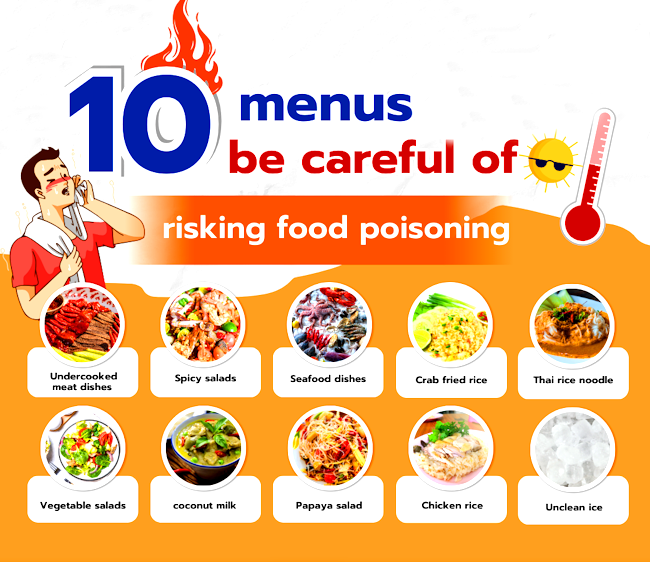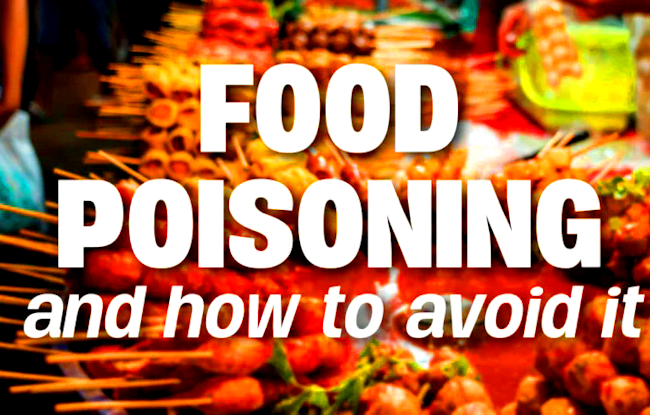Newcomer’s to Thailand have a good chance of getting food poisoning.
The amount of bacteria in the food here takes some getting use to.
Hygiene is not the number one goal of food vendors, who often leave food out in the hot temperatures and wash dishes with dirty water.
It’s not uncommon to arrive in Thailand and develop stomach aches and diarrhea in a matter of days.
If you are going to eat out on the street, always know where the closest toilet is!
In a typical case a person experiences at least three or more of the following symptoms: abdominal cramps; diarrhea; fever; headaches; fatigue/weakness; loss of appetite; nausea; or vomiting.
Local pharmacists can offer you over the counter medication for food poisoning, although this may take 24 to 48 hours to fully kick in.
Limit your food intake to only basic, simple foods such as crackers or bread, but be sure to drink plenty of fluids to avoid becoming dehydrated.
The list of possible sources of food poisoning is long, and the risk can’t be reduced to zero. But most hazards can be avoided by taking a bit of extra care with these items:
- Fruits and vegetables: Uncut fruits and raw vegetables need to be thoroughly washed and drained. To be on the safe side, avoid vegetables and salads at informal restaurants and street food outlets. Fresh fruit is safer when you buy it whole and do the washing, peeling and cutting yourself.
- Fresh fish and seafood: Fresh seafood is abundant in Thailand. The key to making it safer is to cook it properly at sufficiently high temperatures. Eating raw or undercooked fish poses a much higher risk for food poisoning.
- Water and ice: Bangkok’s tap water is fine for things like brushing your teeth or doing the dishes, but bottled or filtered water sources are recommended for drinking and making ice cubes. Most restaurants have bottled water, and ice cubes generally come from safe sources. Whenever you’re not quite sure, stick with the safer option.
- Local Market Food: When you are at a local market, be extremely cautious of raw meat left out, stalls where there are lots of flies, or vendors using dirty water to clean utensils and pots and pans.
Being prepared for food poisoning is something everyone coming to Thailand should plan for.




